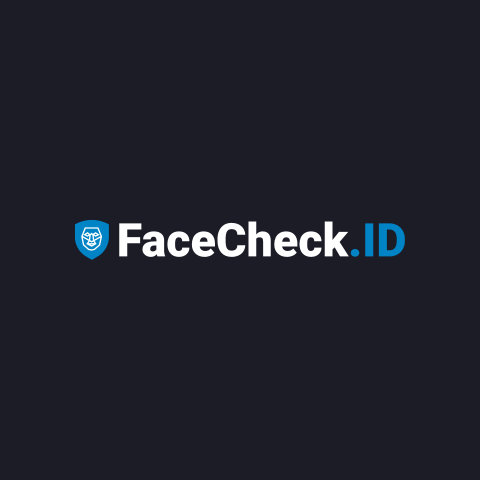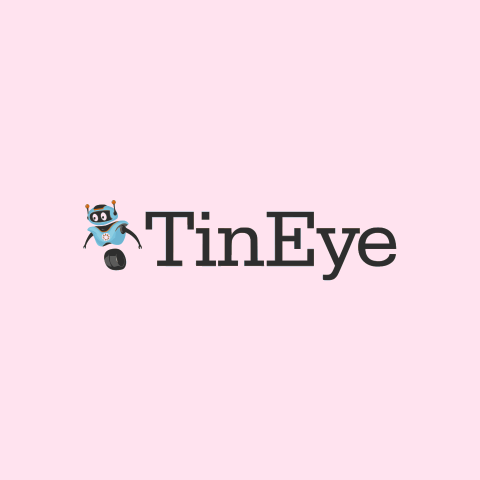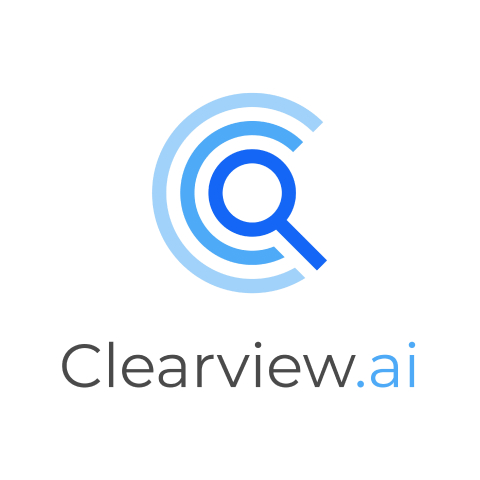Face recognition search engine is a tool that helps you find people online using their photos. It analyzes the picture, “looking” for discernible facial features, and matches them with other images in its database. Then, it lets you know which ones are a close match.
Note: With the power of these face recognition engines, there is potential for misuse. Be sure to use them ethically and responsibly (e.g., not for fraud and harassment) and follow their service terms.
The Geekflare team has tested several face recognition engines and picked the best based on features, usage, and technology.
- 1. Social Catfish – Best for Uncovering Potential Identity Theft
- 2. lenso.ai – Best for AI-powered Reverse Image Search
- 3. PimEyes – Best for Finding Photos of Yourself Across the Web
- 4. FaceCheck.id – Best for Identity Verification
- 5. Betaface – Best for Analyzing Facial Features and Demographics
- 6. TinEye – Best for Reverse Image Searches
- 7. Image Raider – Best Integrated Infringement Monitoring
- 8. Yandex Images – Best for Finding Images Relevant to the Russian Market
- 9. Bing Images – Best for Quick Online Image Search
- 10. Google Images – Best for General Face Search
- 11. Face++ – Best for Developers
- 12. Search4Faces – Best for Social Media Avatar Searches
- 13. Clearview AI – Best for Law Enforcement Agencies
- Show less
You can trust Geekflare
At Geekflare, trust and transparency are paramount. Our team of experts, with over 185 years of combined experience in business and technology, tests and reviews software, ensuring our ratings and awards are unbiased and reliable. Learn how we test.

Best for Uncovering Potential Identity Theft
- AccuracyMedium
- Batch SearchNo
Why Social Catfish
Social Catfish is a search engine focused on finding people online by name, email, phone number, username, address, and reverse image lookup. The tool scans various online sources to find the person, including social media profiles, government and educational websites, news articles, public databases, and professional records.
When searching with a person’s photo, Social Catfish analyzes the person’s face, paying attention to things like biometrics and shape. It takes these insights and compares them with billions of photos online. It then emails you a report containing the information it found, including the person’s name, addresses, emails, social media profiles, and images.
When I tried Social Catfish, I found it pretty advanced compared to other tools. However, I do wish it supported WebP and had a quicker processing time.
Overall, it is a good facial recognition search engine for checking if someone has stolen your identity. Just remember to upload a good image quality file to get better accuracy.
Social Catfish Pros and Cons
Searches the deep web for optimum results.
Generates a detailed report about the person you’re searching for.
Helps detect potential identity theft and catfishing scams.
Generated reports might contain vulgar content since the tool doesn’t censor anything.
Image processing time is too long
No free plan or free trial
Social Catfish Pricing
| Plans | Pricing (monthly) | Key Offerings |
|---|---|---|
| Social Search | $27.95 | 100 social searches for one billing cycle, Names, emails, phone numbers, usernames and address searches |
| Image Search | $28.97 | Unlimited image searches for one billing cycle, Reverse image search |

2. lenso.ai
Best for AI-powered Reverse Image Search
- AccuracyHigh
- Batch SearchNo
Why we chose lenso.ai
Lenso.ai is a platform specializing in reverse image search. With the advanced AI technology implemented on lenso.ai, you can easily start a face search or look for people, places, duplicates, and related or similar images.
Lenso.ai face search functionality allows users to upload images and effectively find similar faces across a vast index. By analyzing key facial features, lenso.ai can match faces with remarkable precision, even in images with varying angles, lighting conditions, and resolutions. The intuitive interface of lenso.ai ensures that both tech-savvy users and novices can navigate the tool with ease.
I tried Lenso AI and found it easy to use with quick results. I liked the filter feature to refine searches. However, it often struggles with face recognition, shows older images, and offers limited results from social media.
If you’re okay with these limitations, it’s a good tool for quick searches, though it may not always be very accurate.
lenso.ai Pros/Cons
lenso.ai utilizes advanced AI algorithms to deliver highly accurate face search results
Vast and continuously updated index of images, enhancing its ability to deliver precise and comprehensive search results
An intuitive and easy-to-navigate interface, which makes it accessible to everyone
Limited or outdated data can impact search results
Very few results from social media.
Flaws with scanning images that have filters applied

3. PimEyes
Best for Finding Photos of Yourself Across the Web
- AccuracyHigh
- Batch SearchYes
Why we chose PimEyes
PimEyes is a reverse image search tool that uses advanced facial recognition to locate your photos across billions of public websites, like news articles, blogs, and forums. It excludes content behind paywalls or login restrictions.
PimEyes identifies images even if you’ve changed your appearance or are in a crowd. It offers an Opt-Out feature to prevent your photos from appearing in future searches and can send alerts when new images are detected online. Additionally, it helps protect your privacy by drafting and sending up to 80 DMCA and GDPR takedown notices.
When I tried PimEyes, I could focus on a specific face even in group photos, and the auto-focus feature saved a lot of time.
But, PimEyes currently searches public websites but not social media. Adding social media would improve image searches, as it contains many personal photos.
PimEyes Pros and Cons
Searches billions of places on the internet to find your face.
Can locate you in photos where you appear differently.
Alerts you when your face pops up somewhere on the open web.
Doesn’t include results from restricted areas on the web.
PimEyes Catfish Pricing
| Plan | Pricing (monthly) | Key Offerings |
|---|---|---|
| Open Plus | $29.99 | One-month access, 25 searches daily, Up to 3 PimEyes’ Alerts |
| PROtect | $39.99 | One-month access, 25 searches daily, Up to 3 PimEyes’ Alerts |
| Advanced | $299.99 | Up to 15 PimEyes’ Alerts |

4. FaceCheck.id
Best for Identity Verification
- AccuracyHigh
- Batch SearchYes
My take on FaceCheck.id
FaceCheck.id is a facial recognition tool that helps you find people online by pulling results from several online sources. It even includes mugshots in the results. Its database contains over 700 million faces so far. Furthermore, you get a link to the people’s social media profiles to help with further verification.
FaceCheck.id returns a score from 50 to 100 when the AI completes its scan. This tells you how closely the results match based on the similarities between the faces it has analyzed. The higher the score, the more similar it is. A score of 50-69 is a weak match, while a score of 90-100 is a certain match.
When I tried Facecheck.Id, it worked well for popular faces with accurate results and an easy-to-use interface. I liked the feature that ranks images by accuracy. However, it struggles with less popular faces.
It can be a great tool to use for identity verification checks when chatting with people online. It can help you determine if the person you’re talking to is who they say they are, so you don’t get catfished.
FaceCheck.id Pros and Cons
Helps prevent fraud, identity theft, and catfishing.
Allows you to delete your face if you find it in the search results.
Has an API that can be integrated into websites and apps.
Requires you to do more research since a quality score doesn’t give you enough information.
No safe search option
Incorrect results if the uploaded image is not directly facing the camera
Issues with identifying people from some regions
FaceCheck.id Pricing
| Plan | Pricing (in crypto) | Key Offerings |
|---|---|---|
| Rookie Sleuth | $19 | 150 Credits, Credits Expire in 14 Days |
| Private Eye | $47 | 400 Credits, Credits Expire in 2 Months, Telegram Alerts |
| Deep Investigator | $197 | 2000 Credits, Credits Expire in 6 Months |
| The Professional | $597 | 10000 Credits, Credits Expire in 1 Year, Export to PDF & Excel |

5. Betaface
Best for Analyzing Facial Features and Demographics
- AccuracyHigh
- Batch SearchYes
My take on Betaface
Betaface bills itself as a face recognition software vendor. It provides an SDK (Software Development Kit) that enables developers to create apps that detect and analyze faces in images and videos.
It also offers an API (Application Programming Interface) for integrating these facial recognition capabilities into apps and websites.
On top of facial recognition, its features include biometric measurements for analyzing and describing facial features. This makes Betaface ideal for security and access control applications where surveillance and identification are important.
It can even determine things like a person’s age, gender, skin color, ethnicity, clothing, and hairstyle shape by analyzing images or videos. Its algorithm can even analyze a person’s facial expression to determine their emotions. All this is demographic information that can help with marketing and KYC policies.
I tried Betaface, and it was a bit confusing to use. It seems better suited for API users who can take advantage of its features. While it provides detailed information about faces, this isn’t very useful for regular users unless you’re working with group photos to find specific faces.
The demo version struggles with accuracy. Overall, it’s not the most reliable tool unless you’re using it for specific API needs.
Betaface Pros and Cons
Advanced facial recognition that can work even with low-quality images.
Offers a robust set of facial recognition and analysis features.
Capable of real-time facial recognition.
SDKs and APIs require specialized programming knowledge to use.
Betaface Pricing
| Plan | Pricing (monthly) | Key Offerings |
|---|---|---|
| Free | €0 | 50/image per day |
| Freemium | €0 | 500 image/day, 0.035 EUR for each extra image |
| Basic | €199 | 40000 image/month, 0.025 € each extra image |

6. TinEye
Best for Reverse Image Searches
- AccuracyMedium
- Batch SearchYes
Why we chose TinEye
TinEye is one of the best reverse image search tools, with over 68 billion indexed images. So, if you’re wondering if a particular image has been posted online, TinEye can help you find it.
TinEye uses facial recognition technology to look for exact matches in other images. It doesn’t rely on the metadata but the content of the image itself. That means it’s capable of finding face matches, even if the image has been edited in some way before publishing.
If you don’t find the image you’re looking for, you can always check later. The website claims it adds hundreds of millions of results each month.
Searching individual images is free, but you can sign up for the paid plan to set up image alerts that can track thousands of images online. This can help you find out where all your photos and images are used online and for what purpose.
It also has a handy browser for Chrome, Edge, Firefox, and Opera that you can install for easy access and searching.
TinEye Pros and Cons
Can upload images in bulk to find out where they’re used online.
Constantly crawls the internet to add more images to its database.
Has an extension for the most popular browsers.
Can’t crawl most social media sites (they block it).

7. Image Raider
Best Integrated Infringement Monitoring
- AccuracyMedium
- Batch SearchYes
Why we chose Image Raider
Image Raider is used to identify copyright infringement. The tool takes the image you upload and finds matches online, along with other information that can help you build a case against the person who published it.
If Image Raider can’t find an exact match, it will look for similar results. It will show you the closest matches first, so you don’t waste time sifting through irrelevant results.
Individuals like photographers can get the most use of this tool since it can find people using their photos without permission. Image Raider can also be integrated into a law firm’s case management system to simplify the process of creating and managing cases. For example, a photographer’s photos can be automatically uploaded from physical drives or cloud storage solutions to find new infringement cases.
Image Raider Pros and Cons
Can quickly and easily find copyright infringement on the web.
Integrates with Zapier for automatic updates on new infringements.
Image Raider may occasionally provide false positives.

8. Yandex Images
Best for Finding Images Relevant to the Russian Market
- AccuracyHigh
- Batch SearchNo
Why we chose Yandex Images
Yandex Images is a Russian search engine with a powerful built-in reverse image search tool that scans billions of indexed web pages.
Even though it searches the entire web, it’s perfect for anyone looking for high-resolution images trending in the Russian market. That’s because Yandex indexes a vast array of content from Russian websites that Google and Bing might not.
Yandex’s reverse image search mechanism is adept at recognizing things like faces and objects within an image. Thanks to computer vision, an AI-powered technology that uses machine learning and neural networks to help programs understand the content and context of visual data in a human-like fashion.
So, even if the image has been altered in major ways, Yandex’s computer vision can compare it with billions of results to find what you need.
Yandex Images Pros and Cons
Helps uncover trendy images that are culturally relevant to Russia.
Indexes Russian content and websites better than other search engines.
Uses computer vision to better understand the content and context of images.
Not as good at indexing non-Russian or international content and websites as other search engines.
Cooperation with Russian authorities raises bias and privacy concerns.

9. Bing Images
Best for Quick Online Image Search
- AccuracyMedium
- Batch SearchNo
About Bing Images
Bing Images is a feature of Bing Search that helps you search for and find various images on the open web. You can search with images instead of search queries and keywords, allowing you to discover related content (some results can even be exact matches).
During a picture search, Bing Images will scan the web and display similar photos in the results. It even shows you related searches to help you discover more content and explore ideas further.
Bing pulls its results from a broad database of indexed images from the web. It can easily identify certain individuals, making it useful when you want to search for celebrities, public figures, and other famous people.
Bing Images Pros and Cons
Suitable for quickly finding public pictures and exploring ideas.
Has indexed a large number of images on the web to help you search for faces.
Can easily identify celebrities and other famous or important figures.
Lack of dedicated facial recognition features.

10. Google Images
Best for General Face Search
- AccuracyHigh
- Batch SearchNo
Why we chose Google Images
Google Images is a feature of Google Search that allows users to find images, such as pictures, illustrations, infographics, and animated GIFs, on publically available websites through reverse image lookup.
At its core, Google Images is a great tool for discovering content and similar images online. For instance, it can help you find a dress or piece of jewelry that a celebrity wore. If it cannot find an exact match, it will at least give you similar or related items.
When it comes to face searches, the results are limited. This is mostly likely due to Google’s strict privacy policies that protect people’s personal information. Like Bing Images, it wasn’t developed to have advanced facial recognition features.
The reverse image lookup can help you find people if their pictures are available on the open web. You can easily use it to identify a celebrity or your picture if it has been published on a public website.
Google Images Pros and Cons
Great for discovering content and similar ideas online.
Can help you identify the faces of famous people.
Can help you find your picture if it’s available on public websites.
Searching people’s faces is limited to what is publicly available and easily discernible.

11. Face++
Best for Developers
- AccuracyHigh
- Batch SearchYes
We we chose Face++
Face++ is an API that provides tools for developers to integrate robust facial recognition features into their apps and programs. The AI that powers its facial recognition engine has been shown millions of faces to help it learn how to extract facial features from images accurately.
This makes Face++ the perfect tool for features like identity verification for access control, unlocking devices, fraud prevention, and automatically tagging photos.
It can also use face attribute analysis to determine a person’s age, gender, and emotional state. These insights can help develop apps that offer personalized experiences.
Furthermore, its facial landmark detection offers exciting opportunities for augmented reality.
For example, by tracking facial landmarks, developers can build apps that overlay digital content, such as filters and virtual makeup, onto people’s facial expressions.
Face++ Pros and Cons
Can extract facial features in images with accuracy.
Can be used to make apps more secure through facial recognition.
Facial landmark detection can help build apps that utilize augmented reality.
Extremely hard for non-developers to access Face++ features directly.
Face++ Pricing
| Plan | Pricing (monthly) | Key Offerings |
|---|---|---|
| Free | $0 | Free sign-up and try out all Face⁺⁺ services |
| Pay As You Go | Custom | Dense Facial Landmark API, Face Detect API, Face Search API |
| Daily/Monthly Plan | Custom | 3D Face Model Reconstruction, Skin Analyze, Facial Recognition |
| Pay for Licensing | Custom | Human Body Recognition SDK, Image Beautify SDK, Image Recognition SDK |

12. Search4Faces
Best for Social Media Avatar Searches
- AccuracyMedium
- Batch SearchNo
Why we chose Search4Faces
Search4Faces is a facial recognition search engine that has over one billion images indexed from sources such as websites, social media, and online public records. It’s focused on helping you find profile photos and avatars.
Currently, it has four databases: VKontakte, Odnoklassniki, TikTok, and Clubhouse. Search4Faces allows you to search each database individually to find the profile pictures and avatars you want.
You can even apply filters to narrow the search to a specific gender, age range, country, and city. And if you don’t find the result you’re looking for in one database, you can try another until you find it.
Search4Faces Pros and Cons
Dedicated search engine for social media profile photos and avatars.
Extensive database with over a billion indexed results.
Don’t search for faces on many social media platforms (e.g., Facebook, Instagram, and Twitter).
Databases haven’t been updated in years (the most recent database was updated in 2022).

13. Clearview AI
Best for Law Enforcement Agencies
- AccuracyHigh
- Batch SearchYes
My tale on Clearview
Clearview AI is a facial recognition company that identifies people by matching their photos with a massive database of images gathered from the internet. The company collects billions of photos from platforms like Facebook, Instagram, and YouTube without user consent. These images are converted into biometric codes for accurate identification.
Law enforcement agencies upload a photo of an unknown person to Clearview. The system then checks the photo against its database to find matches. Clearview AI stands out because of its large database, high accuracy, and ability to identify faces quickly, even in low-quality images or at different angles.
Clearview AI played a significant role in Ukraine during the war with Russia, helping reunite refugees, identify Russian operatives, and counter misinformation.
However, the company has faced legal challenges. Recently, Clearview was fined €30.5 million by the Netherlands for violating privacy laws by collecting images without permission. It was also fined €5.2 million by the French SA.
Clearview AI Pros and Cons
Achieved accuracy scores of 99+% on the Facial Recognition Vendor Test
Database of over 50 billion images, including social media
Combining Faiss and RocksDB allows efficient similarity search and reliable storage
Users can maintain and search their own image datasets
Uses billions of online photos without consent, causing major privacy concerns.
Doesn’t offer a direct subscription plan
Comparison of Top Face Recognition Search Engine
The table below provides a comparison of pricing, ratings, and features for the top face recognition search engine.
Face Recognition Search Engine | Rating Geekflare’s editorial team determines ratings based on factors such as key features, ease of use, pricing, and customer support to help you choose the right business software. | Pricing (monthly) | API Availability | Explore |
|---|---|---|---|---|
 Social Catfish | $27.48 | No | ||
 lenso.ai | $23.99 | No | ||
 PimEyes | $29.99 | Yes | ||
 FaceCheck.id | $6 (in Cryoto) | Yes | ||
 Betaface | FREE | Yes | ||
 TinEye | Free | Yes | ||
 Image Raider | Free | Yes | ||
 Yandex | FREE | Yes | ||
 Bing Images | FREE | No | ||
 Google Images | FREE | No | ||
 Face++ | FREE | Yes | ||
 Search4Faces | FREE | Yes | ||
 Clearview AI | Custom Pricing | Yes |
What is a Facial Recognition Search Engine?
A facial recognition search engine is an application designed to identify people’s faces in images and videos. Usually, it uses AI trained through machine learning to analyze faces and extract important facial features. It then compares those with other known faces in its large image database to determine the best match.
The facial recognition industry was worth approximately $5 billion in 2022 and is projected to expand to $19.3 billion by 2032[1].
Benefits of Face Recognition Engine
Here are some of the ways facial recognition engines may be beneficial to individuals and companies.
Security and Safety
Face recognition lets you quickly identify people in images and videos, which is important for security applications.
For instance, this can help with access control to prevent unauthorized people from entering secure buildings.
It can even be used in surveillance to verify the identities of people in public places and identify violent criminals in the interest of public safety.
Fraud Prevention
When dealing with people online, it can be hard to determine if they are who they say they are. This can be important when conducting financial transactions online or looking for a partner on a dating site.
People can use fake pictures, especially when an AI face generator can create something realistic. By verifying that person’s identity through facial recognition, you can avoid being the victim of theft and fraud.
Finding Missing People
Since some face recognition engines are capable of real-time facial detection, law enforcement can use them to find missing people through CCTV. These powerful AI tools can be more efficient than human eyes in, for example, identifying faces in crowds or low-quality videos.
Even regular users can use face recognition engines to find people, whether it is an old friend or loved one they lost contact with.
Privacy Protection
Through reverse image lookup, facial recognition can help you identify places on the internet where your photo has been published without permission. You can then send a takedown notice to protect your privacy and minimize your online presence.
Some face recognition engines even allow you to set a notification system that lets you know the moment a photo of you is published on the internet. This allows you to take immediate action to secure your privacy.
Copyright Protection
If you’re a photographer, people can take your photos without permission and post them in various places. To make it harder for you to find, they may edit or crop them.
Fortunately, some face recognition engines are trained to see through that and identify people’s faces in the photos regardless of the alterations.
You can then issue a takedown notice or file a lawsuit to get a settlement if people benefit from your work.
FAQs
Yes, you can by using reverse image lookup tools that check if the photo of the person has been published online. These include Google Images, Yandex, Social Catfish, and TinEye.
It depends on the privacy policy of the site you’re using. Ideally, you’d want to use a site that doesn’t store the photos you upload or keep your search history. This is something that all reputable facial recognition sites do to protect your privacy.

